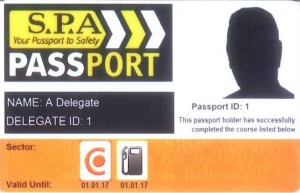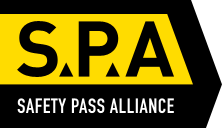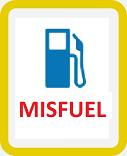Come and see us at the Safety & Health Expo 17th to 19th June 2014 at the Excel Arena
Author Archives: admin
Petrol Retail Passport scheme
The Petrol Retail Safety Passport is run by the Safety Pass Alliance (SPA) and ensures that contractors working on petrol retail forecourts understand the risks involved. The training programme has been developed and is maintained by the Petrol Retail National Steering Group (PRNSG) whose members include: contractors, trade bodies, Cogent, national trading organisations such as Shell, BP and Esso as well as numerous supermarkets. The PRNSG meet regularly and the passport has been in circulation since 2001.
The Passport scheme has resulted in positive feedback from the industry. Russell Bes t, HSE Advisor at JET says: “We require that any contractor employed by JET to work on a forecourt holds a valid Forecourt Passport, this gives assurance that anyone working on our behalf has the same understanding of the hazards of working on a forecourt and the behaviours expected of them. We would encourage all Forecourt operators to check that anyone working on their site has a valid passport”.
t, HSE Advisor at JET says: “We require that any contractor employed by JET to work on a forecourt holds a valid Forecourt Passport, this gives assurance that anyone working on our behalf has the same understanding of the hazards of working on a forecourt and the behaviours expected of them. We would encourage all Forecourt operators to check that anyone working on their site has a valid passport”.
There are currently over 16,000 valid petroleum retail passports in circulation across the UK, with numbers continuing to rise. The safety passport is undertaken as a 2 day course and is valid for 3 years, contractors then have the option to take a 1 day renewal course, up to 6 months before the expiry of their current passport. By sitting the refresher course it will not only save the contractor/employer time and money it will also ensure that all contractors understand the risks involved whilst completing work within a Petroleum environment, whether that be on the forecourt or inside the retail store.
Ian Kidger, Safety and Risk advisor for Esso explained; “At Esso we expect the highest safety skills from every individual working on our forecourts. The safety passport provides an essential understanding of the hazards, risks, safeguards, lifesaving rules, and safe behaviours critical to ensuring nobody gets hurt. At Esso we know there is no better start than an SPA passport”
For further information about the scheme or to see who trains the course in your area please visit www.safetypassports.co.uk or call one of the team on 01926 817450.
New SPA/MPQC latest exemption list
The SPA/MPQC Mineral Products Reciprocal policy has recently been updated with the addition of the FAS Safe Pass (Southern Ireland) and the CPCS Blue card. Click here for a copy of the latest version Mineral Products exemption list Mineral Products exemption list – Jan 1st 2014
New Core Day Version 5
All Training Providers will shortly receive a new Core Day package disc V5, which will replace all previous versions. The new course has updated legislation, case studies and facts, along with videos and group tasks to help keep delegates interacting throughout the course. There will still be 2 assessment papers, now consisting of 20 questions on each paper, with a pass rate of 80%.
The course will be implemented from 1st January 2014 so it is essential that tutors are familiar with the new content as well as course administrators as there is updated assessment papers to be used.
New SPA Price List
From 1st October 2013 we will be increasing our passport prices to £20, not only will this now fall in line with our competitors, the price will now also include the annual audit visit and travel costs to each training provider. The change comes with a welcome opinion amongst training providers who claim it is an ‘excellent idea’.
The new Price list can be seen below:
SPA Passport Scheme
UK Prices
From 01st October 2013
All prices listed below are subject to VAT
Initial Fees
Initial Accreditation Fee (including first year Core licence) £550 (travel costs of 49p per mile apply + accommodation / expenses if applicable)
Annual Fees
Annual licence fee – Core £115.00
Annual licence fee – Sector £115.00
Annual licence fee – Module £25.00
Training Packages
Core training package £900
Construction / Live Events (1 day package) £900
Sector training package Petrol Retail £900
Sector training package / Supervisor £800
SPA Modules £99
Core Renewal package £450
Petrol Retail Renewal package which includes petrol DVD* £925
Other Sector Renewal packages £800
Additional Course Material CD’s if required £30
Additional DVD (if required) £30
Fees per course
Course fee, per day £16.00
(Includes recorded delivery return of permanent passports)
Passport fee £20 (includes SPA annual audit and travel expenses)
Extra Sector Body Registration Fee per Candidate
Petrol Retail (Cogent) £2
Mineral Products (MPQC) £20
Live Events (PSA) £5
Extras
Mineral Products delegates will also be charged for a one off QCF Qualification of £20 each.
Replacement permanent passport fee – Must be paid for on ordering £30
(Includes recorded delivery return)
Tutor passport fee £15
Tutor Registration fee £30
Pocket Guides
Pocket guide – core – Payment to be made with order if under £20 £1 each
Pocket guide – sector £1 each
Postage prices for pocket guides as follows: 01 – 20 pocket guides = £3
21 – 50 = £7
51 – 200 = £16
Over 200 = £20
NOTE:- Minimum order of £25 + p&p
SPA Merge with MPQC
SPA merge with MPQC
From the 1st March 2013, SPA formed an alliance with MPQC (Mineral Products Qualifications Council) and recreated the Quarry package which has now become Mineral Products. The change has seen a new package put together by MPQC, which contains an updated PowerPoint, assessments, photographs and a chance for delegates to gain a module which forms part of a QCF qualification.
With the view to make the passport mandatory by September 2014 and with over 80 of the new course already to have ran, the merge has been welcomed by many. For any more information on the course please contact the SPA office.
NEW Petrol Retail V4
Safety Pass Alliance Ltd
*Updated* Petrol Retail Package
Background
The safety passport scheme for the petrol retail industry is the product of a unique collaboration between major oil clients UKPIA, Cogent and SPA, forming the PRNSG (Petrol Retail National Safety Group).
The first two day initial courses were held in October 2000; since then there are now in excess of 15,500, live Petrol Retail passports.
The specific training focuses on the practical issues of identifying potential hazards, safe working practices and controlling of work in the petrol retail workplace, enabling contract workers and employees to prove their awareness of the basic principles of health and safety.
Updates
The package has had many text, picture, notes pages and assessment paper updates but the main change is the mandatory exercise.
This exercise has been designed to add a practical element to the course, and is designed in such a way there are various options as to how it can be run based on the audience.
As part of the exercise there are some hazard spotting questions based on a picture of a petrol station. Delegates are also required to complete a risk assessment of the tasks they would carry out on a petrol station.
There are now three photographs of a petrol station scene this will hopefully give greater flexibility to cover all audiences.
Forecourt(for contractors whose work is predominately outside)
Shop (for contractors mainly working inside the shop)
Construction phase (designed for contractors working mainly during construction phases)
SPA Module – Risk Assessment
SPA Module – Risk Assessment
Course Aim
To build on basic health and safety information specifically associated with risk assessment
To understand the process and requirements for evaluating risk
Learning Objectives
To ensure delegates understand risk assessment.
On completion of this module delegates will be able to:
List the five steps of risk assessment
Identify the meaning of the terms hazard and risk
List the hierarchy of control – control measures to put in place
Outline the roles and duties of employers / supervisors
Carry out practical examples of a risk assessment
Agenda
- Legislation
- What is a risk assessment?
- Five steps to risk assessment
- Hazard and risk
- Practical examples
Success Indicators
Assessment results: Should show acceptable theoretical understanding and an increase in the awareness of evaluating risk.
SPA Module – Slips, Trips and Falls
SPA Module – Slip, Trips and Falls
Course Aim
To build on basic health and safety information by concentrating on risks specifically associated with slips, trips and falls
Learning Objectives
To ensure delegates understand what slip, trips and falls are, and to be aware of the associated hazards.
On completion of this module delegates will be able to:
Identify key ways of reducing slips, trips and falls hazards.
Agenda
- Workplace (Health, Safety and Welfare) Regulations
- Pedestrian hazards including: slips, trips, falls from height, striking by moving, flying or falling objects, striking fixed or stationary objects, collisions with moving vehicles
- Items to consider for reducing hazards including; flooring, lighting, housekeeping, obstructions, footwear, pedestrian routes, preventing falls, cleaning, maintenance
- Safe access
Success Indicators
Assessment results: will demonstrate an acceptable theoretical understanding and an increase in the awareness of slips, trips and falls and control measures put in place.
SPA Module – Working at Height
SPA Module – Working at Height
Course Aim
To build on basic health and safety information by concentrating on risks specifically associated with Working at Height
To understand the implications of: risk of personal injury, cost to the business, job security, environment not properly considered
Learning Objectives
To ensure delegates know what Working at Height is, and to be aware of the associated hazards.
On completion of this module delegates will be able to:
Statistics – Falls from height are the major cause of death in the workplace – Dangerous!
The risk assessment procedure when selecting control measures – working at height
Employer/employee responsibilities
Agenda
- Ladders
- Stepladders and Trestles
- Mobile tower scaffold
- MEWP’s
- Fixed scaffolding
- Roof working
Success Indicators
Assessment results: Should show acceptable theoretical understanding increase in the awareness of Working at Height.



















